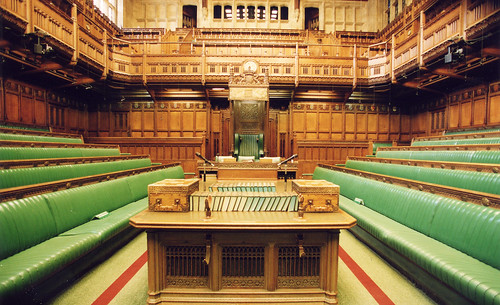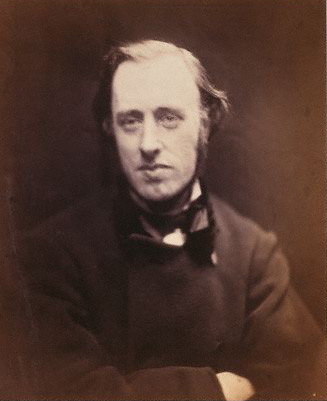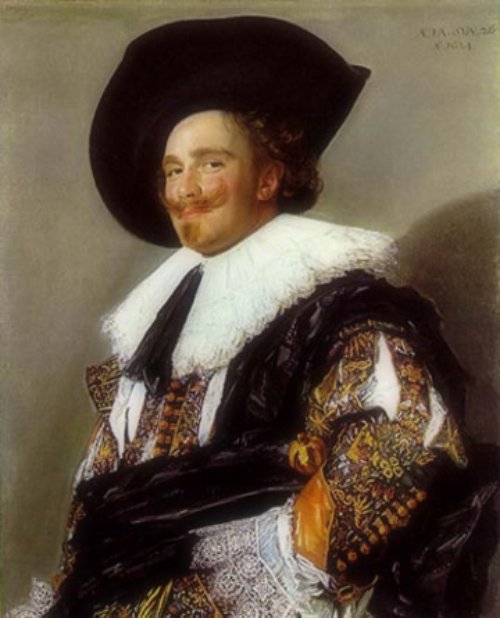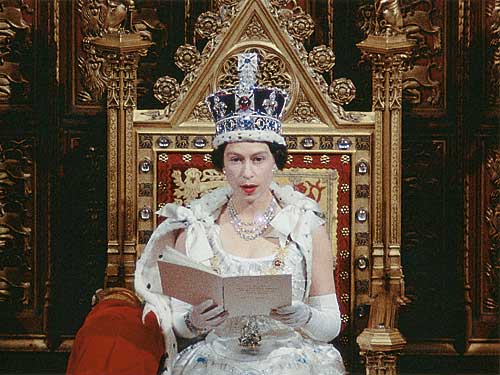I am a relative newcomer to the “blogosphere”, and as such I have been amazed by the reaction to my earlier article, “The Tipping Point”. Clearly, I am neither the first nor the only Canadian who has “crossed the chasm”. There is obviously a large and vibrant community of patriotic, concerned and intelligent men and women of principle out there, within Canada, coast-to-coast, and even abroad; that has been driven to the same conclusions that I have reached. What has struck me particularly is that general disgust with the Liberals - and the havoc they are wreaking with democracy in Canada - crosses not only provincial and even national frontiers, but to a certain degree at least, ideological lines as well. There is a natural tendency for political libertarians also to be economical libertarians, and hence to reside on the right side of the ideological spectrum; but belief in democracy and freedom is not the exclusive preserve of the right. I have always admired and respected certain adherents of the left: those who are devoted to and principally animated by a concern for the welfare of their fellow man. I believe that there can and should exist, a natural and healthy discourse and dialectical tension between the constituencies that I will call “the true right” and “the true left”. The former consistently press for policies and measures that nurture and defend democracy and democratic societies, but that also allow the free economy to flourish – while often devoting great measures of personal time and resources to private charity. The latter push for public and corporate responsibility for social welfare, but recognize that social programs can be paid for only by a healthy and vibrant economy, which in turn can be maintained only by energetic and free enterprise. Both share a belief in true democracy – one in which all men and women are free to think, to discuss and to express their views, and to come to their own conclusions; one in which all such views and conclusions are given fair and equal weight; one in which the informed and principled beliefs and actions of others are respected, even where they are in opposition to one’s own; and one in which lies, deception, coercion, bribery and theft have no place.
All that being said: it is clearly the “true right” that is most completely appalled by the historical and most particularly by the recent conduct of the Liberal government. This is because, in their case, it is both the specific outcomes of recent parliamentary events, as well as the manner in which they were achieved, that run counter to their principles. The “true left” is less affected because while they may consider the method employed to be abhorrent, they support the specific and immediate outcomes. This was the essence of the NDP’s “deal” with the Liberals. I read, for example, yesterday in the Ottawa Citizen, a letter to the editor which stated, in effect, that parliament “had worked” because the basic outcomes of the May 19th Commons votes - no near-term election, passing the “reformed” budget, etc. - were supported by the majority of Canadians.
But beware: when you have to hold your nose to get what you want; when you feel the need to wash your hands after shaking those of your allies; when you find yourself using the phrase “deal with the devil” after the fact; loud alarm bells should be ringing between your ears. Even supposing that this letter writer was correct in his or her assumption of majority support for these near-term outcomes – which I would dispute – he or she is still wrong, as is the entire “true left”, in not sharing the right’s utter horror at how these outcomes were achieved. Because the truth is this: in democratic government, process not only matters, it is central. It matters more than anything else; more than any specific outcome that it might produce. The “true left” should understand that it is not simply that a corrupted process that worked against the right - and the West, and Quebec - this time around; might well work against them the next time. They should understand that faith in a process that is open, fair and consistent - i.e., in a government that is representative and responsible - is the only thing, other than tyranny and coercion, which can hold a society together for any length of time. Free men will consent to submit their wills to those of others only when they believe that they do so as the outcome of a process in which they have been heard, on a fair and equal footing, along with all others; and - most critically - that that same process will turn their way, if and when they come to command majority support. Nothing will dissolve the bonds and restraints that make a democratic society function – presuming, of course, that the society is composed of men and women who retain the capacity to be affronted by insult and injustice – faster than the discovery, by any semi-defined and quasi-permanent constituency, that the process is rigged against them.
Through a consistent and deliberately irrational vilification of their opponents – witness the recurrent “hidden agenda” absurdity, which they substitute for reasoned and specific objections to their opponents’ policies and beliefs - the Liberals have sought to constrict free and open debate for at least the past decade. But what they have just demonstrated is that even when their opponents are able, in spite of all the obstacles mounted in their way, to achieve several successive, majority victories against them, they will simply refuse to acknowledge the defeat, for as long as it takes to bribe or coerce enough “support” to their side. The short time that they needed to do so with Belinda – less than a week – obfuscates the illegality of their stonewalling in this case, even making the delay appear reasonable to many. But the second-order tragedy of Belinda’s shallowness mitigates neither the magnitude of the primary outrage, nor the depth and consequence of the reaction to it that we will now begin to see in those parts of the country where it comes as a full and final slap in the face.
David Warren has used the term “permanent disenfranchisement” in reference to Western Canada, and the term is not too strong. This idea is ridiculed by the Liberals, and discounted by many, if not most, Ontarians and Quebecers – even those of good will, who have simply not given the matter sufficient thought. How, they ask, can people who elect the same number of members to parliament per capita as Ontario and Quebec, be disenfranchised? The answer is that there are, for better or for worse, differences in beliefs and priorities, which follow demographical – and, consequently, geographical - boundaries, which for many years have placed the West outside what the Liberals, and with them many Ontarians and Quebecers, call “the mainstream”. It would be quite beside my point here either to highlight that the magnitude and character of those differences are obviously and grotesquely exaggerated, manipulated and propagandized by the Liberals; or to say that Westerners in general and Albertans in particular – those crazy “prairie preachers” as the Globe and Mail was calling them only last week - are quite irrationally vilified by the Liberals, in a manner that would not do injustice to Karl Lueger. To date, Western Canadians have borne these insults, and lived with life “on the outside”, with patience and resolution, even though their net cash exchange with Ottawa - as decided by governments almost uniformly not of their choosing - has been permanently stuck in the red. But the following should be clear. The realization that, even when they have patiently and diligently built a party from scratch, a party that took as its mantra that “the West wants in” to Canada; that when that party finally achieved a majority consensus vote in Ottawa, that that victory was simply ignored by the Liberal power, and their party criticized by citizens throughout Central Canada for having had the audacity to attempt it; that realization will change something - solidly, permanently and quite justly - in the hearts of Western Canadians. Unless I miss my mark, from now on, the Liberals, Ontario and the rest of Canada will discover that Western Canada has just checked out, and will begin asserting itself – and be damned what the Liberals, Central Canada or anyone else might think.
And make no mistake: this will rapidly escalate into full-scale political war. For, as several respondents to my last article, including Left Handed Right, MSD and WL Mackenzie, reported in comments or in their own blogs; the Liberal power structure is based on control and manipulation that cannot be exerted over a province or region that is financially independent. The oil money that is now flowing in a torrent into Western Canadian coffers represents a quite lethal threat to the Liberals, unless they can divert control of it away from the Western provinces and into their own hands. So, Alberta, Western Canada, be warned: the Liberals are coming for your money. You can bet the ranch on it. The flurry of Liberal shots about “illegal” health care privatization in Alberta represents the opening skirmish: do not mistake the real aim here. After all, Quebec is undertaking even greater such privatizations; but Quebec is relatively poor and already dependent on Ottawa and the Liberals, so the Liberals do not bother to object to it. This is all preparatory to a frontal assault intended to grab your money and make you subservient, and for the Liberals, this fight is life and death. I can only exhort Albertans and all Western Canadians to resist this attack. Resistance will not be difficult if you are resolved. After all, the Liberals have no army to send against you – they have destroyed the one Canada used to have. All they can do is refuse to send you money. If you have enough of your own, and if you can resist their attempts to grab it, you will be utterly beyond their power to coerce. Just declare that from now on you are keeping your money, that you will decide how to spend it yourselves, and that the rest of Canada can do whatever it likes, but from now on with its own money - and watch the Liberals go apoplectic. Western Canada: you have the power to break the Liberals, and in your case, outright separation from Canada is not even required. I beseech you: for your sake, for all our sakes, do not let the opportunity slip.
Quebec is the other primary casualty of the recent Liberal disgraces. But Quebec is a different story from Western Canada, as, again, the various readers of my last post have rightly pointed out. Quebec’s disaffection with Canada has different origins than the West’s, but it is no less real and genuine. From the rise to predominance of Upper Canada, Quebecers were treated like second-class citizens in their own country. Any Quebecer audacious enough to attempt to rise in the world inevitably found his path blocked at that point when his accent was heard by Torontonian ears – and it was not even necessary for him to leave his native province to fall victim to this prejudice. Certainly, this discrimination no longer exists, but let us be clear that while it may be history, it is not ancient history; and that Quebecers’ reactions to it, and the sense of isolation and difference from all other Canadians that its very causes underscored for Quebecers, legitimately motivated the cause of Quebec separatism through to 1995. That Quebecers have not, to date, actually opted for separation, is due to the fact that these real stimuli of separatism have been in true and real recession. Today, however, Quebecers must face a new affront to their collective dignity, and this affront is of purely Liberal creation. Quebecers have woken up to the fact that their legitimate voice in this country has been subject to Liberal attempts at subversion through manipulation, deception, graft, and bribery. In short, they have been disenfranchised - note the recurring theme. Quebecers are confronting the realization that the Liberals would not simply offer them good, honest reasons to remain in this country, and then stand back respectfully and let them make up their own minds, although all other Canadians were prepared to do – in fact, thought they were doing – just that. They must now decide whether they can reconcile their dignity with these insults by continued participation in Confederation. Unlike Western Canada, Quebec is not rich, although it has made considerable economic advances over the past twenty years. It is already dependent on Ottawa to a degree that, I would guess, makes Quebecers feel ashamed in their heart of hearts. So it cannot simply refuse to play Ottawa’s game, as the West can and will do. Quebec must decide outright to stay or to go. And this time around, many fewer Canadians will be able to look Quebecers in the eye and tell them that they should do themselves the favour of staying. Too many of us would now rather see Quebecers become our neighbours, proud masters of their own house; than continue as the fellow subjects of Liberal outrages and insults.
So it will be the West, Quebec, or both; that will now proceed, along different paths, to the destruction of the Liberal order that the latter consider to define Canada. This is hardly revolution, as at least one blogger has accused me of seeking to inspire. It is simply – dare I use the famous pamphleteer’s phrase - common sense. And decent Canadians in all provinces and regions will benefit enormously from the changes so wrought.
Walsingham
Read the full article >>
 Writes Gerald Warner this Sunday:
Writes Gerald Warner this Sunday: Vice-Regal Saint:
Vice-Regal Saint: 



















































.gif)

.gif)














































































































